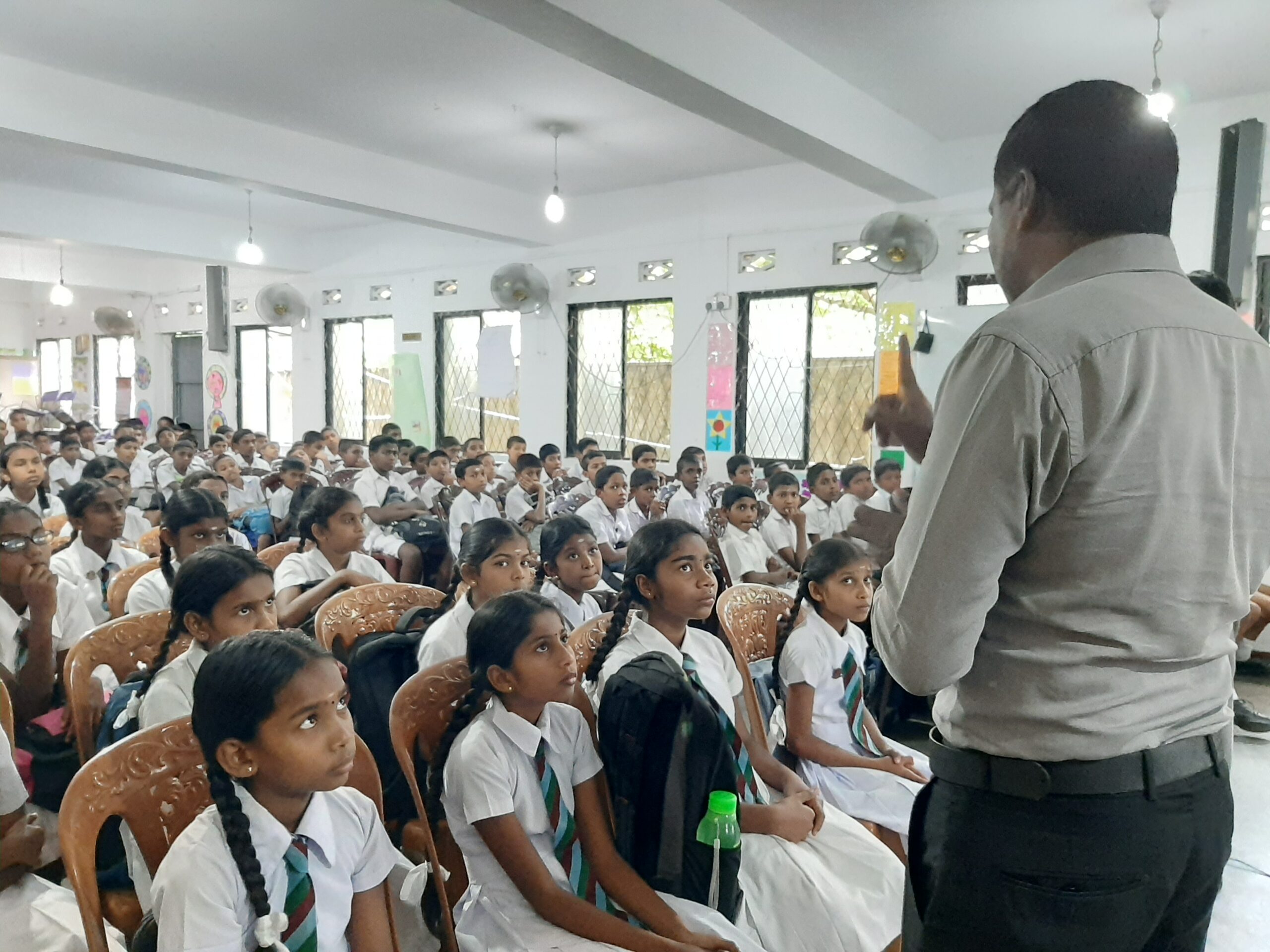The project removes barriers to access to menstrual necessities and hygiene management education, while breaking the unbreakable myths and stigma.
Poor menstrual hygiene remains a neglected issue in Sri Lanka. More than 3.9 million menstruating women and girls in Sri Lanka are excluded, stigmatised, shamed and living with no solution in accessibility to menstrual hygiene products and even access to menstrual education. Commercially available menstrual hygiene products are simply too expensive and are not affordable for many families. Also the availability of menstrual hygiene products is often not uniform across the country. Use of semi-hygienic alternatives, such as old clothes or rags during their periods is a common fact in Sri Lanka.
This is a distressing situation because poor menstrual hygiene management (MHM) causes serious reproductive and urinary tract infections. In addition to the health risks, poor MHM may adversely impact on female education performance and labour force participation.
Associated stigma is the leading factor for many Sri Lankans including policy makers to have a negative perception on menstruation and be unaware of the adverse impacts of poor menstrual hygiene management. The majority consider menstrual hygiene a luxury, not a necessity pushing women and girls into many sufferings.
On the other hand, using single-use menstrual hygiene products generate tons of menstrual waste in general. Therefore, there is a need to replace disposable menstrual hygiene products with environmentally friendly products to reduce waste generation and adverse impact on the environment.
The project creates a significant impact on the society and on the environment, while contributing to achieve 3 Sustainable Development Goals and related targets.
 | The project will improve access to menstrual education and information which promote menstrual health of women and girls and contribute to achieve the SDG target 3.7 “Ensure universal access to sexual and reproductive health-care services, including for family planning, information and education, and the integration of reproductive health into national strategies and programmes” |
 | The intervention eliminates discrimination against women and girls associated with stigma, myths and taboos of menstruation and contributes to achieve the target 5.1 “End all forms of discrimination against all women and girls everywhere”. |
 | The project has well integrated into the WASH to achieve the SDG target 6.2, “Access to adequate and equitable sanitation and hygiene for all paying special attention to the needs of women and girls and those in vulnerable situations” and it increases access to menstrual hygiene products in adequate quantity and quality for all women and girls to follow standard hygiene practices. |

Our approach
This project is a part of the ReDI’s WASH program. The entry point of the project is the schools, workplaces and community leaders. We create a respectful environment which is free from stigma and facilitate access to menstrual hygiene products and education for all.
Effective and adequate menstrual hygiene management requires women and girls to have access to menstrual hygiene products in sufficient quality and quantity and have good menstrual education among the society as a whole. The aim of the intervention is to produce and distribute reusable sanitary pads which are more environmentally sustainable in order to improve the accessibility to menstrual hygiene products and to provide menstrual hygiene education.
We create awareness on the basic facts linked to the menstrual cycle and educate school girls and their families, communities, and women at workplaces on menstrual hygiene management with dignity and without discomfort or fear. Engaging men and boys in our education programs at the right time and in the right space is an integral part, to help them understand the importance of the topic – puberty and menstruation and prioritize the need among others whether it is within the family, community, working place or even in the committees to make decisions.
The project works with rural women networks and helps them to start manufacturing affordable, eco-friendly menstrual pads. Despite addressing the challenges surrounded with menstruation, the intervention generates economic opportunities for rural women in menstrual hygiene.
The project assesses the practical usability and acceptability challenges of the reusable pads.

Objectives
The intervention aims to address three overarching issues:
- The stigma and lack of understanding of menstrual hygiene management among the families, communities and general public as a whole.
- Lack of accessibility to menstrual hygiene products for the women and girls, particularly in the rural areas.
- Menstrual waste accumulation due to disposing of high volumes of menstrual hygiene products to the environment.


